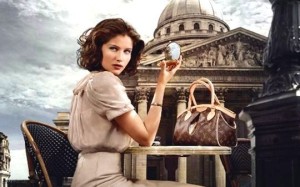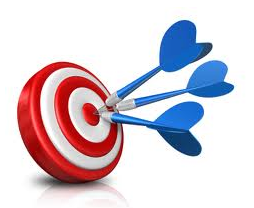 Luxury marketing is the marketing of luxury goods which are not considered necessary to the consumer, but which make life more pleasant. Designer clothes, luxury cars, and expensive jewelry are just some of the items that qualify. The luxury market is considered different from the traditional consumer market, because luxury buyers make exclusive purchases that the majority of consumers cannot afford.
Luxury marketing is the marketing of luxury goods which are not considered necessary to the consumer, but which make life more pleasant. Designer clothes, luxury cars, and expensive jewelry are just some of the items that qualify. The luxury market is considered different from the traditional consumer market, because luxury buyers make exclusive purchases that the majority of consumers cannot afford.
Defining Luxury Products
It can be difficult to pinpoint exactly what defines luxury products, but three characteristics top the list: expensive cost, high quality, and a great look. A luxury brand is defined by its distinctive identity and position as an innovator. This sort of company doesn’t have to worry about standing out among the competition as much. While Crest and Colgate may be very competitive as brands that manufacture toothpaste, a product of consumer necessity, Tiffany’s doesn’t have to worry about other jewelers in the same way, because their name lends them credibility as the best in their industry. So naturally, maintaining and promoting this credibility constitutes a specific form of marketing.
Luxury Marketing Tactics
Building and maintaining brand image is the cornerstone of luxury marketing. In order for the luxury buyer to choose a specific business, there must be an element of prestige and exclusivity to being a part of their customer base. Luxury marketers also work hard to target the specific audience for an item, whether they are marketing designer brands overseas or catering to a specific wealthy demographic in the United States, according to Forbes. Principles of luxury marketing include appealing to consumer passion, because only true connoisseurs of certain items will seek out the best quality, arguably most expensive choice. They also focus on the product as experiential and promote the pleasure of owning a high-ticket item.
The Evolution of Luxury Marketing
As with traditional marketing, luxury marketing has grown and evolved with the changing priorities of the consumer and seen various products rise in popularity. There is a marked difference between luxury products and luxury experiences, and a large portion of luxury marketing can involve hotels, resorts, and spas. When promoting luxury goods as temporary experiences, it is even more important for marketers to appeal to the consumer’s self-image and desire for pleasure. Besides the rise in experience-based products, luxury marketing has become increasingly international, with opportunities in countries like Brazil and China, where more emphasis is placed on status than in the U.S. and Europe. Luxury shopping can account for up to 30 percent of gross domestic product in many nations, depending on the pricing structure.
Related Resource: Entertainment Marketing
Mainstream brands and luxury brands can be increasingly blurred, because even more affordable designers may choose to implement luxury marketing tactics and appeal to customers based on exclusivity and quality, instead of factors like low price and convenience. In addition, the internet allows luxury brands to reach potential luxury buyers more efficiently. Luxury marketing remains a vitally important and influential area of marketing, and it has helped many of the world’s most prestigious companies build the right reputation for success.
